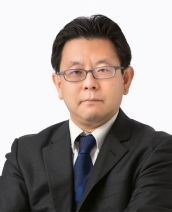Shinichi Akayama
Partner
Leader, Telecommunications, Information technology, Media & Electronics (TIME) Practice, Japan
Shinichi advises multiple TIME (Telecom, Information Technology, Media and Electronics) clients on growth strategy, turnaround and transformation.

Areas of Focus
Education
Past Experience

Shinichi is a Partner at Arthur D. Little, based in Tokyo and heads our TIME (Telecom, Information Technology, Media, Electronics) Practice in our Japan office. He is also a core member of our Global Big Data Competence Center.
His main area of consulting work is in designing business strategy, new-business entry strategy and technology strategy in the manufacturing, IT and telecom industries.
Prior to joining Arthur D. Little, Shinichi worked for a major Japanese mobile communications company, where he was involved in planning and rolling out various types of services for wireless internet, as well as network-related services. He has multiple experiences setting up new services through collaborations with Silicon Valley start-ups, major financial institutions, and other key players.

Enabling a sustainable telco ecosystem

Achieving resilience and sustainability for the EV battery supply chain

Shinichi is a Partner at Arthur D. Little, based in Tokyo and heads our TIME (Telecom, Information Technology, Media, Electronics) Practice in our Japan office. He is also a core member of our Global Big Data Competence Center.
His main area of consulting work is in designing business strategy, new-business entry strategy and technology strategy in the manufacturing, IT and telecom industries.
Prior to joining Arthur D. Little, Shinichi worked for a major Japanese mobile communications company, where he was involved in planning and rolling out various types of services for wireless internet, as well as network-related services. He has multiple experiences setting up new services through collaborations with Silicon Valley start-ups, major financial institutions, and other key players.

Enabling a sustainable telco ecosystem

Achieving resilience and sustainability for the EV battery supply chain
More About Shinichi
- University of TokyoMaster in Aerospace Engineering
- University of TokyoBachelor in Aerospace Engineering
- NTT DocomoBusiness development / Strategy
